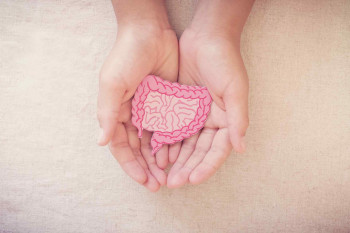The Science of Music: How Music Affects the Brain and Spine
Welcome to a captivating exploration of the science behind music and its profound impact on the brain and spine. In this blog, we will delve into the fascinating ways in which music influences our emotions, cognition, and overall well-being. Join us on this journey as we unravel the mysteries of music's effects on the brain and spine.
The Power of Music: An Introduction
A. Music as a Universal Language: Music transcends cultural and language barriers, serving as a universal language that connects people on an emotional level. Regardless of background or nationality, music has the ability to evoke strong emotions, create shared experiences, and foster connections between individuals and communities.
B. Historical and Cultural Significance of Music: Throughout history, music has played a vital role in human culture. It has been an integral part of rituals, ceremonies, celebrations, and storytelling across various societies. Music reflects the diversity of cultures and has evolved over time, mirroring societal changes and technological advancements.
How Music Impacts the Brain
A. The Neurochemical Response to Music: When we listen to music, our brains respond by releasing neurochemicals that influence our emotions and pleasure centers. Dopamine, a neurotransmitter associated with reward and pleasure, is released during pleasurable musical experiences. Oxytocin, often referred to as the "bonding hormone," is also released, fostering feelings of social connection and empathy. Endorphins, our body's natural painkillers, are activated through music, promoting a sense of well-being and euphoria.
B. Modulation of Brain Waves and Attention: Music has the power to modulate our brain wave patterns, affecting our state of relaxation, focus, and attention. Calming music can stimulate the production of alpha waves, which are associated with a state of relaxation and stress reduction. On the other hand, music with a faster tempo and rhythmic complexity can promote beta waves, enhancing focus and concentration.
Music and Emotional Well-being
A. The Influence of Music on Mood: One of the most noticeable effects of music is its impact on our mood. Different types of music can evoke a wide range of emotions, from joy and exhilaration to sadness and nostalgia. Upbeat and uplifting music has the power to elevate our mood, energize us, and evoke positive emotions. Conversely, soothing and calming music can help reduce stress, anxiety, and promote emotional relaxation.
B. Music Therapy for Mental Health: Music therapy is a specialized form of therapy that utilizes music to address emotional, cognitive, and social needs. It has shown significant efficacy in treating various mental health conditions, including depression, anxiety disorders, and trauma. Through music therapy techniques such as improvisation, songwriting, and listening to specific types of music, individuals can express their emotions, develop self-awareness, and improve overall well-being.
IV. Music and Cognitive Functioning
A. Enhancing Memory and Learning: Music has been found to have a positive impact on memory and learning. The "Mozart Effect" suggests that listening to classical music can enhance cognitive abilities, including memory retention and retrieval. Certain types of music, particularly those with a repetitive structure and mnemonic qualities, have been effective in improving memory and information processing.
B. Music and Neuroplasticity: Neuroplasticity refers to the brain's ability to reorganize itself and form new neural connections. Music has been shown to facilitate neuroplasticity, particularly in individuals with neurological conditions or those recovering from brain injuries. Music therapy interventions, such as rhythm-based exercises and melodic intonation therapy, can enhance motor skills, language development, and cognitive abilities.
Music's Impact on the Spine and Physical Health
A. Pain Management and Music: Music has been recognized as a powerful tool in managing pain. It can distract the mind from pain signals, reduce anxiety related to pain, and promote relaxation. Listening to preferred music or engaging in music-guided imagery has shown positive effects in alleviating chronic pain and facilitating pain management.
B. Rhythmic Entrainment and Movement: Music's rhythmic qualities have a profound impact on movement and motor skills. Rhythmic entrainment, the synchronization of movement to an external beat, can improve gait, coordination, and balance. In rehabilitation settings, music is often used to motivate and facilitate physical therapy exercises, enhancing recovery outcomes.
Conclusion:
The science of music reveals its profound impact on the brain and spine. From influencing emotions and cognitive functioning to promoting physical rehabilitation and pain management, music's therapeutic potential is vast. Understanding the science behind music allows us to harness its power for healing and well-being. Embrace the transformative benefits of music for your brain and spine, and let its harmonies elevate your life.
FAQs
How does music affect our emotions?
Music has a powerful impact on our emotions by evoking a wide range of feelings. Upbeat music can energize and uplift us, while calming music promotes relaxation and reduces stress and anxiety.
Can music improve memory and cognitive function?
Yes, research suggests that music can enhance memory and cognitive function. Listening to music, particularly classical compositions, has been linked to improved memory retention and retrieval.
Does music have physical benefits?
Absolutely. Music can have physical benefits such as pain management. It can help distract from pain signals, reduce anxiety related to pain, and promote relaxation, making it a valuable tool in pain management.
Can music aid in rehabilitation?
Yes, music can aid in rehabilitation. Its rhythmic qualities can facilitate movement and motor skills development. Rhythmic entrainment, syncing movement to music, has been shown to improve coordination and balance.
Is music therapy effective for mental health?
Yes, music therapy has proven to be effective for mental health. It can be used to address depression, anxiety disorders, trauma, and other emotional challenges. Music therapy techniques allow individuals to express emotions, enhance self-awareness, and improve overall well-being.

























